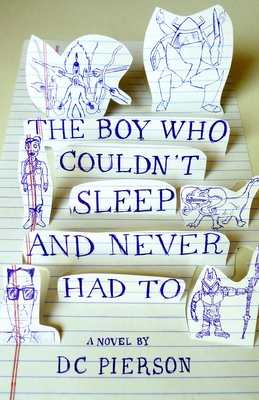by: James D. Watson
I started reading this because I wanted to know more about DNA, and I found it interesting, though less for the science (which made me feel like I was eavesdropping on a conversation about people I didn't know) than for the gossipy and unexpectedly sassy tone. You can almost hear the glee when he drops this sentence in at the beginning of chapter 20: "I was preoccupied with sex, but not of a type that needed encouragement." Have the mating habits of bacteria ever gotten such a titillating introduction?
The book is a description of a race as well as a discovery, but it manages to fit in some of the bizarre rivalry and secretiveness and sheer messiness of the people involved. And, of course, the thrill of winning. (It also makes me feel incredibly unexceptional, having not upturned the world of science and won a Nobel Prize by the age of 24.)
Solar
by: Ian McEwan
I loved Atonement so utterly and completely that my expectations for a McEwan novel are always unfairly high. I assume that it will move me to tears, keep me on my toes with shifting sympathies, and be a wickedly good story told on the edge of old-fashioned suspense.
This book made me sad. It's about a Nobel Prize winning scientist, but all the thrill of science has gone out of him and he shuffles along through middle age, cocooned in placid, depressing selfishness. There is nothing to like about him. Nothing. He is pitiable, cruel, frustrating, and sometimes disgusting. He is absolutely unsympathetic, and the entire novel felt like I was watching a piano getting winched higher and higher over his head while cringing in anticipation of the inevitable, messy crash. There are some sly and funny moments, but it's mostly a depressing portrait.
The Discreet Pleasures of Rejection
by: Martin Page
This is a bizarre little novel. It's about a young Parisian named Virgil whose girlfriend dumps him through a message on his answering machine, which is sad and ordinary, except that he doesn't remember her at all. The oddity carries on from there. Virgil's parents are in a circus. His best friend tells fortunes. He lives in an apartment building that is entirely occupied by prostitutes, who ask him to buy them cigarettes and items from the drugstore. It's absurd and completely unbelievable, but for some reason, this doesn't matter. Nothing seems real, but there are some moments that use all the weird and impossible details to hit, exactly on the nose, the feeling of being afraid that you've lost something that really matters, but you aren't sure whether you're making it up.
It didn't always work, but I enjoyed it. Except for the ending, which felt like the second of two and unnecessary clutter.
The Boy Who Couldn't Sleep and Never Had To
by: D. C. Pierson
I only picked up this book because of its cover. I am a shallow person. Let me find a picture of it.
 Funny, right? I definitely remember drawing stories on binder paper while in school, though my monsters looked less like aliens and more like escapees from a rogue taxidermist's shop.
Funny, right? I definitely remember drawing stories on binder paper while in school, though my monsters looked less like aliens and more like escapees from a rogue taxidermist's shop.Back to the book. It was incredibly fun. I haven't been a teenage boy, but I imagine that this is just what it's like, aside from having a best friend who has somehow escaped the biological need for sleep. It manages to hit that balance between obsessive self-examination and awkward enthusiasm to make me remember how it felt to be a shy person in the crazy zoo that is high school, and how, even though it was a hundred times more intense then (at least, in my memory), some things still feel exactly the same now. And, best of all, instead of dwelling on adolescent angst, the novel delivers an adventure complete with unabashed passion for Science Fiction (and I capitalize those words on purpose: we're talking ray guns and monsters from outer space here), surging right past the point of ridiculous and not caring at all.

No comments:
Post a Comment